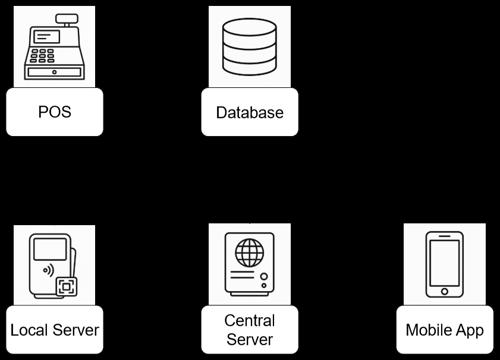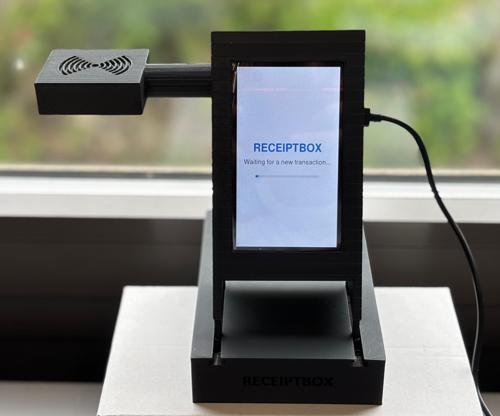Universal Receipt Manager: Seamless Point-of-Sale Integration for Digital Receipts
- Degree programme: BSc in Informatik
- Authors: Daniel Josef Matt, Nathan Luè
- Thesis advisors: Prof. Dr. Kenneth Ritley, Moritz Maier
- Expert: Dr. Andreas Spichiger
- Year: 2025
ReceiptBox is a prototype system for digital receipt management, aimed at improving user experience through a practical, low-effort solution. Receipts are captured at the point of sale, sent to a central server, and accessed via a mobile app. The system is flexible, automated, and works with existing POS infrastructure with minimal changes.
Introduction
In the current environment, receipt management is disorganized and inefficient. Consumers accumulate paper receipts that are easy to spoil or lose and difficult to store. Existing digital solutions are often fragmented, tied to individual retailers, or require manual user intervention. In addition, the use of paper receipts has a significant environmental impact: thermal paper is difficult to recycle, and its production and disposal contribute to pollution. To address these needs, ReceiptBox, a universal and automated system for digital receipt management, was created.
Goal
The goal of the project is to build a prototype of a component-based ecosystem that digitalizes receipts at the source, sends them to a central server, and makes them accessible to users via a mobile app. The system is designed to be minimally invasive and compatible with existing POS setups; for this reason, an inexpensive local server is introduced. This server, easily deployable near any POS, interfaces with the central server, managing receipt capture, user identification, and temporary storage in case of network issues. The central server provides storage, synchronization, and communication with the app.
Architecture and operation
The system includes four main components: the POS, a local server in the store, a central server, and a mobile app. The local server, running on a microcomputer (Raspberry Pi), receives receipt data from the POS via webhook and enables user identification through QR code or NFC. Once identified, the receipt is sent to the central server, which stores it and notifies the user via the app. If no identification occurs at checkout, a unique QR code is generated for delayed linking. The user can scan it later to retrieve the receipt. All receipts are accessible and manageable in the app.
Results
The developed prototype is complete and fully functional, demonstrating the technical feasibility of the ecosystem. Tests validated both immediate and delayed receipt linking. The local server operated reliably, forwarding receipts and handling network outages without data loss. The modular architecture and synchronization mechanisms confirmed the system’s robustness and scalability. Although tested with Odoo, the solution can be adapted to other POS platforms with minimal data formatting adjustments.

